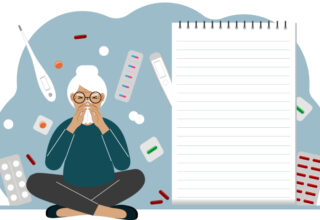The short answer: Yes, your employer can contact you while you’re on sick leave in Ireland, but the contact must always be reasonable, essential, and respectful.
When you’re unwell, the last thing you want is constant calls or emails from work. Many employees often wonder whether employer contact during sick leave is even legal in Ireland, and what your rights are when you’re off sick.
This guide breaks down what that means, what counts as “reasonable contact”, and how to protect your rights when communication becomes excessive.
What Does Irish Law Say About Contact During Sick Leave?
Irish employment law does not specifically forbid employers from contacting employees on sick leave. (Workplace Relations Commission–Sick Leave)
Some communication is normal and even necessary, for example:
- Confirming your absence
- Requesting sick certs
- Supporting your wellbeing
However, employers must always act in a fair, non-intrusive, and supportive way.
Why Do Employers Contact Employees on Sick Leave?
Your employer may legitimately contact you for reasons like:
- Checking your wellbeing:
Basic welfare check-ins (especially during longer absences) are considered acceptable.
- Requesting a Medical Certificate:
This is required under Ireland’s Statutory Sick Pay Rules.
- Planning staff cover:
Short-term workload adjustments may require brief communication.
- Return-to-work support:
This might include discussions about a phased return, reasonable accommodations, or Occupational Health input.
- Duty-of-Care Obligations:
Employers have a responsibility to support your wellbeing.
What is Considered Reasonable Contact While on Sick Leave?
Employers should keep contact limited and purposeful.
Reasonable contact might include:
- A short, scheduled weekly check-in
- A request for an updated sick cert
- Clarifying your expected return date
- A simple welfare message during longer absences
The communication should feel supportive, not stressful or pressuring.
Examples of Unreasonable Contact
Your employer should not:
- Pressure you to return to work early
- Contact you excessively or outside reasonable hours
- Ask for work updates or completed tasks
- Force you to attend meetings
- Request confidential medical details
- Make you feel guilty or uncomfortable
Excessive or intrusive communication may be considered harassment or unreasonable behavior.
Why Employers Should Avoid Excessive or Unnecessary Contact
Even if well-intentioned, too much contact during sick leave can negatively impact an employee’s health and return-to-work process. Here’s why:
- Employees need proper rest to recover:
Disturbing an employee’s rest can delay recovery or worsen symptoms.
- Excessive communication can aggravate stress or illness:
Work-related messages or calls can trigger anxiety, stress, or guilt.
(If you feel overwhelmed at work, here are 5 ways to manage stress in the workplace)
- It may pressure the employee to return too early:
Unsolicited updates about projects or deadlines can create guilt or fear of falling behind. This can lead to an unsafe early return to work.
(Many employees feel anxiety and guilt about taking sick leave, known as sick note paranoia. Learn more about Sick note paranoia.)
- Employees may not be able to help anyway:
They don’t have access to systems, may be medicated, or simply too unwell to think clearly.
- Frequent contact can feel like harassment:
If the contact becomes frequent, pushy, or stressful, it may fall under workplace harassment.
Long-Term Sick Leave: What to Expect
If your absence becomes long-term, communication may become more structured. Employers may arrange:
- Occupational health review
- Return to work planning
- Discussions for updates on your prognosis
- Reasonable accommodation discussions
Learn more about long-term sick leave in Ireland.
Do I Have to Answer Every Call or Email?
No, you’re not obligated to answer every call or email while you’re on sick leave.
However, you must maintain basic communication such as confirming key updates or providing sick certs.
Some contact is necessary for:
- Administrative purposes
- Confirming your absence
- Checking on your wellbeing
If you completely ignore all communication without any explanation, the employer may view it as not following the procedure.
Can My Employer Ask Me to Work While on Sick Leave?
No, you cannot be asked to:
- Join meetings
- Submit work
- Provide project updates
- Complete tasks
- Make work decisions
This goes against the purpose of the sick leave and may breach your rights.
What If My Employer Keeps Contacting Me?
-
Set Boundaries
If the contact becomes excessive or overwhelming, you can set boundaries politely.
For example, you can use this email template to answer your employer:
“Hi [Manager’s name],
Thanks for checking in. I’m currently unfit for work and focusing on recovery, so I’m not well enough for regular calls or detailed discussions. I will:
– send updated sick certificates as required, and
– reply to essential administrative questions when I’m able.
Please keep any contact limited to essential matters only.
Kind regards,
[Your name]”
-
Check Your Company’s Sick Leave Policy
Most workplace policies usually outline expected communication levels.
-
Speak to HR
HR can step in if boundaries are not respected.
-
Seek External Support if Needed
You can contact the Workplace Relations Commission (WRC) for support and guidance.
To make a complaint to the WRC, gather your evidence, go to the WRC e-complaint portal, fill out the e-complaint form and submit it with the supporting documents (if prompted). The WRC will review your complaint and decide on next steps. These steps may include mediation, inspection, or an adjudication hearing.
Quick Summary
- Employers can contact employees on sick leave
- Contact must be limited, reasonable, and supportive
- You must provide medical certificates when requested
- You cannot be asked to work while unfit
- Excessive contact may be considered harassment
- You can set boundaries if communication becomes stressful








